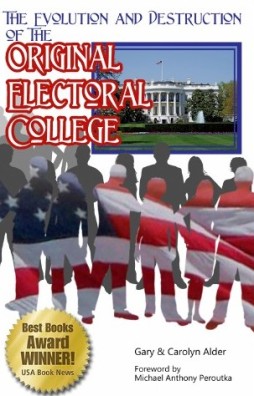The 9th and 10th Amendments are the keystones to preserving Freedom.
Key 14 Analysis
Federalism is a distribution of powers between a central government and a state government. Shared powers, preserves the sovereignty of the states and of the people by retaining state and local jurisdiction for everything not delegated to the national level. Specific enumerated powers are delegated to three separate branches of national government, Legislative, Executive and Judicial.
These two amendments summarize the intent of the Framers regarding personal rights and government powers. The rights of the people are retained in the people, whether or not they are enumerated, but the powers delegated to government are limited to only those which are enumerated in the Constitution.
These two amendments addressed the concerns of Madison and Hamilton.
Quotes
(W)hen all government, domestic and foreign, in little as in great things, shall be drawn to Washington as the center of all power, it will render powerless the checks provided of one government on another, and will become as venal and oppressive as the government from which it separated. Thomas Jefferson 1821 to C. Hammond Life and writings of T.J.
* * *
A private individual may do anything except that which is legally forbidden; a government official may do nothing except that which is legally permitted. Ayn Rand The Virtue of Selfishness; The Narure of Government p. 128
* * *
The great object of my fear is the federal judiciary. That body, like gravity, ever acting, with noiseless foot, and unalarming advance, gaining ground step by step, and holding what it gains, is engulfing insidiously the special governments into the jaws of that which feeds them. Thomas Jefferson, letter to Judge Spencer Roane, Mar 9, 1821
* * *
At the establishment of our constitutions, the judiciary bodies were supposed to be the most helpless and harmless members of the government. Experience, however, soon showed in what way they were to become the most dangerous; that the insufficiency of the means provided for their removal gave them a freehold and irresponsibility in office; that their decisions, seeming to concern individual suitors only, pass silent and unheeded by the public at large; that these decisions, nevertheless, become law by precedent, sapping, by little and little, the foundations of the constitution, and working its change by construction, before any one has perceived that that invisible and helpless worm has been busily employed in consuming its substance. In truth, man is not made to be trusted for life, if secured against all liability to account. Thomas Jefferson, letter to Monsieur A. Coray, Oct 31, 1823
* * *
In questions of power, then, let no more be heard of confidence in man, but bind him down from mischief by the chains of the Constitution. Thomas Jefferson
* * *
Three basic principles of the Constitution and Constitutional law which limits the power of the national government are federalism, separation, and enumeration. David W. New
* * *


